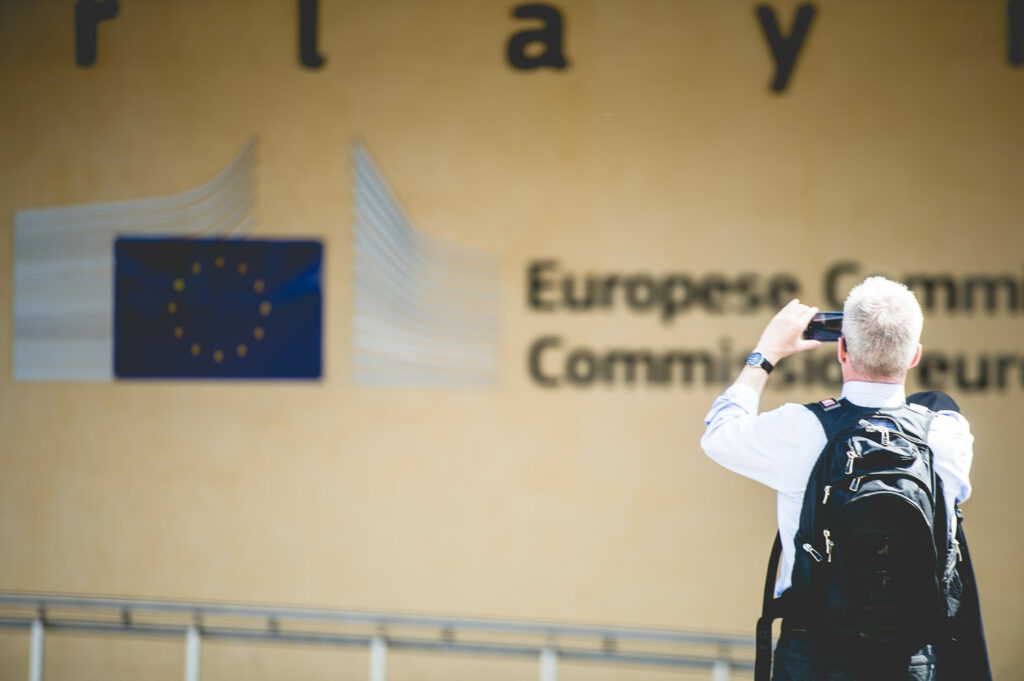Europe stands at a “turning point” and must ensure it does not become “the world’s museum” but remains master of its destiny, says European Council President Charles Michel, who is entering the final stretch of his term.
When Michel assumed the presidency in 2019, the idea that Europe needed to pursue “strategic autonomy” and reduce dependence on other continents was already gaining traction. “I know challenges remain but we have made more progress in the last five years, due to successive crises, than in the previous thirty,” he told The European Newsroom, a collaborative platform involving Belga News Agency.
Michel highlighted the European response to the Covid-19 pandemic and the subsequent large-scale recovery plan as key achievements. He also sees the massive, immediate support for Ukraine as a success of his tenure. Convincing European leaders to approve arms deliveries and European funding in the early days of Russia’s invasion was an “obsession” for Michel. Concurrently, the EU has been investing heavily in developing its defence industry.

European Council President Charles Michel (centre) with Ukraine president Volodymyr Zelenskyy (left) and Prime Minister of Hungary Viktor Orban (right) at an extraordinary summit of EU Heads of State in Brussels, Thursday 17 October 2024. Credit: Belga
Nonetheless, the feeling persists that European security hinges on the decisions of American swing state voters. Michel argues that the EU should not anxiously wait for the next occupant of the White House to act.
A victory by either Donald Trump or Kamala Harris would probably not bring a drastic change to core long-term Washington policies. Michel points to ongoing protectionism and focus on China. “There are differences between Trump and Harris, especially in the short term, but are we sure the long-term direction of EU-US relations will be so different?”
The EU urgently needs to address its competitiveness compared to the US and China. During his 47th and final European summit in two weeks, Michel hopes to persuade European leaders to embrace an ambitious strategy focused on innovation, research and development, a liberalised capital market, large-scale investments, and “dramatic reduction” of administrative burdens. “Mario Draghi and Enrico Letta’s recent reports on competitiveness highlight issues we can no longer ignore. We need to address them.”
Disappointment and double standards
Michel’s biggest disappointment has been the limited influence on the Middle East conflict. “We are Israel’s largest economic partner and Palestine’s biggest cooperation partner. We should be more ambitious in using our tools on both sides.” He notes that some leaders have already discussed the association agreement with Israel and expects a debate on the issue “sooner or later.”
Europe must avoid double standards and continue to insist on respecting international law, warns Michel. “Otherwise, we lose our credibility and influence globally.” The Middle East conflict traditionally divides EU member states. “This conflict polarises the world, including within the EU, but we underestimate the impact we could have if we were more ambitious and united.”
Related News
- Europe needs to move on from 'the world of yesterday', says Mario Draghi
- 'Soon there won't be anything left': Thousands march to save Belgian industry
As president, Michel was “obsessed” with fostering trust and unity among European leaders. He cautions against entirely abolishing the veto right, a debate resurfacing with the potential expansion to 30 or more member states. Michel acknowledges the need to prevent veto abuse but warns, “If we move away from unanimity too quickly, we risk no longer striving for common positions... Frustrations could arise in the European Council, and divisions might become the new norm. It should be possible to ensure the veto is only used when a crucial national interest is at stake.”
Michel’s term ends in late November, with former Portuguese Prime Minister Antonio Costa set to succeed him. Michel will provide more details on his future plans only after his term concludes.

